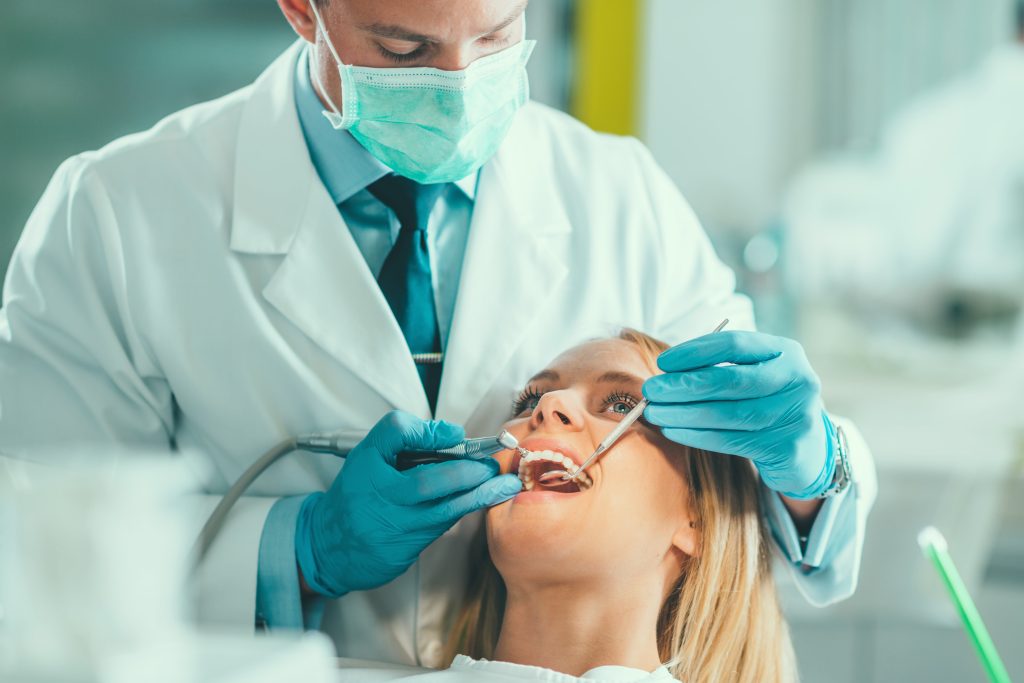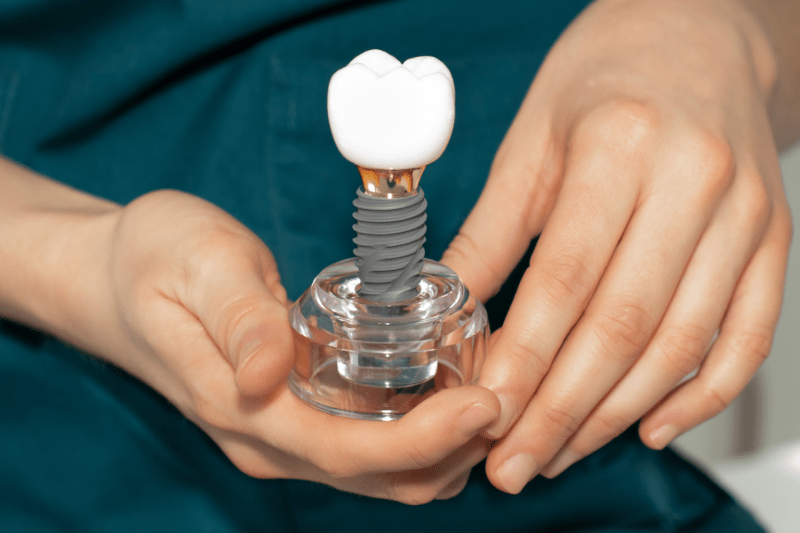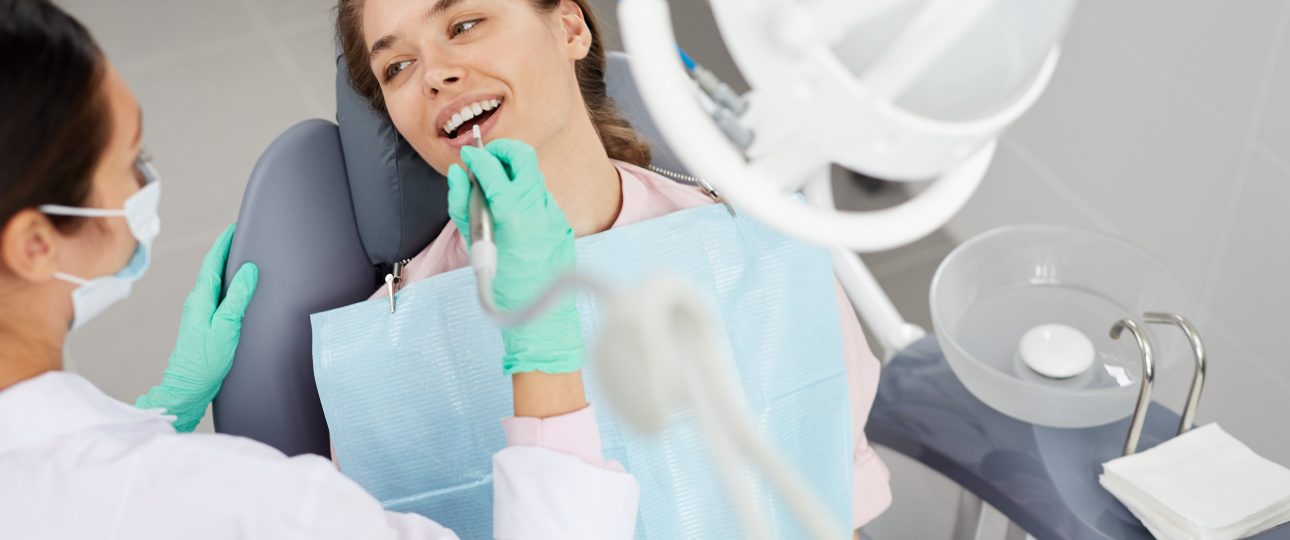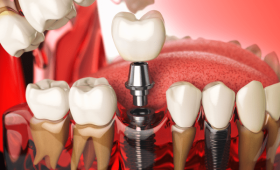What is the Average Cost of Full Mouth Dental Implants in Manchester?
The cost of full mouth dental implants in Manchester varies widely depending on the patient’s oral structure, the brand of implants used, and the surgeon’s experience. Generally, this cost can range from £10,000 to £25,000 for a single arch, and £20,000 to £50,000 or more for both arches. This pricing usually includes the surgeon’s fee, anaesthesia, surgical procedures, and the final prosthetics. However, additional treatments (such as bone grafting, tooth extraction, etc.) can significantly increase the cost. The location of the clinic and the additional services it offers also play a role in the pricing.
What are the Main Factors Affecting the Price of Full Mouth Dental Implants?
The most important factors affecting the price of full mouth dental implants include the quality of the implant brand to be used (premium brands like Swiss-made Straumann are more expensive), the level of the surgeon’s expertise and experience, and the scope of additional procedures required for the treatment. For example, patients with insufficient bone density may need a bone graft or a sinus lift operation, which increases the total cost. Additionally, the material of the prosthetic teeth (acrylic, porcelain, zirconia) and laboratory costs also directly affect the price.
What is the Price Difference Between “All-on-4” and “All-on-6” Systems?
The “All-on-4” and “All-on-6” systems are popular techniques used in full mouth implant treatment. As the name suggests, “All-on-4” refers to a prosthetic fixed on four implants in a single arch, while “All-on-6” refers to a prosthetic fixed on six implants. Generally, the “All-on-6” system is more expensive than the “All-on-4” system because more implants are used and it offers a more stable structure. The price difference varies depending on the clinic and the patient’s needs.
Does the NHS Cover the Cost of Full Mouth Dental Implants?
The National Health Service (NHS) generally does not cover dental implants, as these treatments are considered a cosmetic procedure in most cases. Implant treatments supported by the NHS are only applied in very serious medical conditions such as oral and jaw cancer, in patients who have lost teeth due to trauma, or as a result of rare developmental disorders. Even in such cases, there can be long waiting lists and limited options.
How Long Does the Treatment Process Take, and Does This Duration Affect the Cost?
Full mouth dental implant treatment can generally take between 3 and 12 months, depending on the patient’s bone structure and overall health. This process consists of two main stages: the placement of the implants in the jaw and the placement of the prosthetic teeth after the healing process (osseointegration). The length of the treatment duration does not directly affect the cost, but some clinics promising faster results may have higher prices.
What is Included in the Treatment Cost?
The cost of full mouth dental implant treatment generally covers a range of services. These services include the surgeon’s consultation and examination fees, X-rays and 3D tomography scans, anaesthesia costs, implant surgery, the implants themselves, abutments, and permanent prosthetic teeth. Additionally, some packages offered by clinics may include temporary teeth, post-operative care, and medications. Pricing details vary from clinic to clinic.
Are There Credit and Financing Options for Dental Implants in Manchester?
Yes, many dental clinics in Manchester offer financing options for full mouth dental implant treatment. These options often include interest-free credit plans or low-interest payment plans for a specific period. This allows patients to pay for the high-cost treatment in more manageable monthly instalments. The details and eligibility conditions of financing options can vary from clinic to clinic.
What is the Extra Cost of Bone Grafting and Sinus Lift Surgery?
In patients whose jawbone volume is insufficient for implants, bone grafting (adding bone) or sinus lift surgery for the upper jaw may be required. These additional procedures significantly increase the total cost of the treatment. The cost of a bone graft can range from £1,000 to £3,000, depending on the amount of graft needed and the material used. The cost of a sinus lift operation usually ranges from £1,500 to £4,000. These costs should be included in the treatment plan beforehand.
What is the Difference Between the Cost of a Single Implant and a Full Mouth Implant?
The cost of a single dental implant includes the implant itself, the abutment, and the crown, and generally ranges from £1,500 to £3,000. The cost of a full mouth implant, on the other hand, includes the multiple implants required to restore the entire mouth and a custom-designed, fixed prosthetic typically containing 10-14 teeth. The cost of a single implant is only a part of the full mouth implant cost, and due to economies of scale, full mouth treatment can be more affordable than the sum of individual implant costs.

What Materials are Used for Permanent Prosthetic Teeth and How Does it Affect the Cost?
The permanent prosthetic teeth used in full mouth implant treatment are generally made from materials such as acrylic, porcelain, or zirconia. Acrylic prosthetics are the most cost-effective option, but porcelain and zirconia prosthetics are more durable and aesthetically superior. Zirconia prosthetics are the most expensive option because they offer the most natural appearance and durability, and they can significantly increase the cost.
Are There Additional Costs for Revision Implant Treatment?
Yes, if a previously performed implant treatment fails or requires revision, additional costs will arise. Revision implant treatment may involve removing the existing implants and performing additional bone grafting or other procedures to allow the jawbone to heal. Such treatments are more complex and more costly than the initial surgery. The cost of revision depends on the procedures to be performed and the surgeon’s experience.
Are Temporary Teeth Provided During the Treatment Process, and What is the Cost?
In full mouth implant treatment, temporary teeth are used to meet the aesthetic and functional needs of patients during the production of permanent prosthetics and the healing (osseointegration) of the implants. These temporary teeth are generally included in the treatment cost. However, in some clinics, this service may be offered for an extra fee. Temporary teeth allow the patient to continue their daily life comfortably.
Why Do Prices Differ Between Various Clinics?
The prices of dental clinics in Manchester vary due to many factors such as the clinic’s prestige, location, the technology used, the surgeon’s expertise, and the scope of the “all-inclusive” packages they offer. For example, a luxury clinic in the city centre may offer higher prices than a clinic in a less central area. High-tech equipment and a specialist surgeon are also factors that increase the price.
Are There International Quality Standards for Implants?
Yes, there are international quality standards for dental implants. The most reputable implant brands have proven their quality with many years of clinical research and tests by independent organisations. These brands have received approval from international authorities such as the FDA (U.S. Food and Drug Administration) or the European Union (CE). Choosing a quality implant brand is crucial for the long-term success and longevity of the treatment.
Is Full Mouth Implant Treatment a Painful Procedure?
Full mouth implant treatment is generally performed under general anaesthesia or sedation, so the patient does not feel any pain during the procedure. After the procedure, mild to moderate pain and swelling are normal. These discomforts can be easily managed with painkillers and anti-inflammatory medications prescribed by the surgeon. Thanks to modern surgical techniques, post-operative pain and discomfort are minimal.
What Materials are Used for Full Mouth Implant Treatment?
The main material used in full mouth implant treatment is titanium. Titanium is a biocompatible metal that has excellent compatibility with the human body and integrates smoothly with the bone. While the implants themselves are made of titanium, the abutments and the substructure of the prosthetic teeth can also be made of titanium or zirconia. The final prosthetic teeth are generally produced using acrylic, porcelain, or zirconia.
What Should Be Considered After the Treatment Process?
After the treatment process, it is essential to strictly follow the surgeon’s instructions for a successful recovery and a long-lasting result. It is important to eat soft foods for the first few days, avoid smoking and alcohol, pay attention to oral hygiene, and use prescribed medications regularly. Regular dental check-ups and professional cleanings are of critical importance for the health of the implants.
What is the Success Rate for Full Mouth Implants?
The success rate of full mouth dental implants is quite high when experienced surgeons and quality materials are used. The success rate is generally over 95%. However, this success rate may vary depending on the patient’s overall health, smoking habits, and the importance given to oral hygiene. The success rate may be slightly lower in patients with chronic conditions such as diabetes.
How Durable are Full Mouth Implants?
Full mouth dental implants can last a lifetime with proper care and regular check-ups. The implants themselves (the titanium screw) are very durable as they integrate with the bone. The prosthetic teeth can be replaced in case of wear or breakage. However, proper oral hygiene and regular visits to the dentist extend the life of the implants and prosthetics.
What are the Costs for the Necessary Preliminary Examination and Diagnosis?
Before full mouth implant treatment, a comprehensive preliminary examination and diagnosis process is required. This process includes imaging methods such as X-rays, 3D tomography (CBCT), and digital scanning to examine the patient’s mouth and jaw structure in detail. The cost of these diagnostics can be included in the clinic’s packages or charged as a separate fee. These costs can generally range from £150 to £500.
Who are Full Mouth Implants Suitable for?
Full mouth implants are suitable for edentulous individuals or those who have lost a large number of teeth, who are in good general health and whose jawbone volume is sufficient to support the implants. Patients with gum disease or chronic conditions must get these issues under control before treatment. After a comprehensive evaluation, it is determined whether the patient is a suitable candidate for implants.
What are the Alternatives to Full Mouth Implant Treatment?
The most common alternatives to full mouth implant treatment are full or partial dentures. Removable dentures are a more affordable option that can be taken out, but their chewing function and aesthetics are inferior to fixed prosthetics. Dental bridges, while an option for single missing teeth, are generally not suitable for full mouth restoration and require the cutting of adjacent healthy teeth.
What are the Advantages of Full Mouth Implants Over Removable Dentures?
Full mouth implants have many advantages over removable dentures. Most importantly, since the implants are fixed to the jawbone, they offer a stable structure just like natural teeth. This allows patients to speak, eat, and smile comfortably. Additionally, implants prevent jawbone resorption, while removable dentures cannot stop bone loss. Implants offer a more natural look and feel.
Is There an Age Limit for Full Mouth Implants?
There is no upper age limit for full mouth implant treatment, but the patient must be in good general health. The lower age limit is generally 18 years and over, as the jawbone must have completed its development. Implants placed at a young age may require future correction as the jawbone continues to grow.
How Can I Choose the Right Clinic for Treatment?
Choosing the right clinic is critical for a successful full mouth implant treatment. When doing your research, you should check the clinic’s accreditations (such as CQC), the surgeon’s experience and certifications, the implant brands used, and the reviews and references of previous patients. The clinic’s guarantee services and post-treatment care support are also important criteria.
How Does Smoking Affect the Success of the Treatment?
Smoking can seriously negatively affect the success of full mouth implant treatment. Smoking reduces blood flow in the mouth, which makes it difficult for the implants to integrate with the jawbone (osseointegration) and slows down the healing process. It also increases the risk of infection. For this reason, surgeons generally recommend that patients quit smoking a few weeks before and after the surgery.
Do I Need to Stay in the Hospital After the Treatment?
Full mouth implant treatment is generally considered an outpatient procedure, and it is possible for patients to be discharged on the same day. However, in some cases, especially if the surgery is more complex or the patient does not feel comfortable, staying in the hospital for one night may be recommended.
Is There a Warranty for Full Mouth Implants?
Many clinics in Manchester offer a warranty for full mouth implant treatment. This warranty usually covers the lifetime warranty of the implant brand used and potential issues with the prosthetics for a certain period (e.g., 5-10 years). Warranty conditions can vary from clinic to clinic and are generally dependent on the patient having regular check-ups.
What are the Post-Treatment Check-ups Like?
Post-treatment check-ups are vital for monitoring the health of the implants and the condition of the prosthetics. In the first year, regular check-ups are performed at intervals determined by your surgeon. In these check-ups, the condition of the implants and your oral hygiene are evaluated. In subsequent years, it is recommended to visit the clinic at least once or twice a year for professional cleaning and a check-up.

Are There Special Packages for Patients Coming from Abroad?
Some clinics in Manchester may offer special treatment packages for patients coming from abroad. These packages can include not only the treatment but also accommodation, airport transfers, and coordinator services to facilitate post-treatment follow-up. However, such services may not be as common and comprehensive as the dental tourism packages in countries like Turkey.
When are Permanent Teeth Placed After the Implants are Inserted?
After the implants are placed in the jawbone, the transition period to permanent teeth depends on the osseointegration process. This process usually takes between 3 and 6 months. During this period, the implants fuse with the bone and create a stable foundation. At the end of this period, the surgeon confirms that the implants have successfully integrated and proceeds to the second stage for the placement of the permanent prosthetic teeth.
What is the Medical Insurance Coverage for Full Mouth Implants?
Private medical insurance companies in the UK generally exclude dental implant treatments for cosmetic purposes. However, some more comprehensive packages from insurance companies may provide partial payment for tooth loss resulting from an accident or illness. It is important to carefully review the details of your insurance policy or contact your insurance provider.
What are the Anaesthesia Options Before the Treatment?
The type of anaesthesia for full mouth implant treatment is determined based on the patient’s general health and their level of anxiety about the procedure. The most commonly used types of anaesthesia are local anaesthesia, sedation, and general anaesthesia. Local anaesthesia only numbs the area being operated on, while sedation relaxes the patient, and general anaesthesia makes the patient completely asleep. The cost of each type of anaesthesia may vary.
How Much of a Down Payment Do I Need to Make for Full Mouth Implants?
Dental clinics in Manchester usually request a down payment for full mouth implant treatment before the start of the treatment. The amount of this down payment can vary from clinic to clinic but is generally a portion of the total cost. The remaining payment can be made in instalments according to the stages of the treatment or after the treatment is completed. Credit and financing options may also require a down payment.
Why are Implant Surfaces Important?
The implant surface is a critical factor that determines how quickly and successfully the implant will integrate with the jawbone (osseointegration). Modern implants have special surface coatings that allow bone cells to adhere more easily to the surface. These surface technologies shorten the healing process and increase the success rate of the treatment. Quality implant brands with advanced surfaces are therefore more expensive.
Do Full Mouth Implants Cause Odour Problems?
Properly done and regularly maintained full mouth implants do not cause odour problems. Odour is usually caused by poor oral hygiene. Bacterial plaque and food debris that accumulate around the implants can lead to bad breath. Therefore, regularly brushing and cleaning the prosthetics and the area around the implants is of critical importance for preventing odour.
Do Full Mouth Implants Cause Gum Recession?
Dental implants do not cause gum recession. On the contrary, they help protect gum health by stopping the bone and tissue loss that occurs with the loss of natural teeth. However, situations like poor oral hygiene or incorrect placement of implants can lead to an infection called peri-implantitis, which can cause gum recession. Therefore, proper care and choosing a specialist surgeon are vital.
How Do Full Mouth Implants Affect Speech?
Full mouth implants help patients speak more clearly and correctly by replacing missing teeth. Initially, especially when temporary prosthetics are used, some patients may experience a slight adjustment period and their speech may sound a bit different. However, as the brain and mouth muscles get used to the new situation, speech returns to normal completely. Full mouth prosthetics restore the ability to speak as well as the chewing function.


